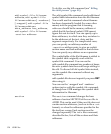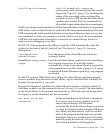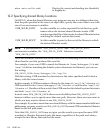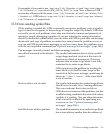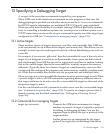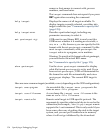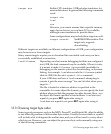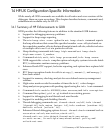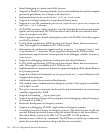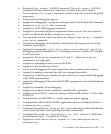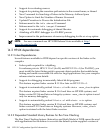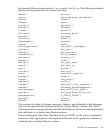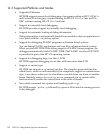target sim
Builtin CPU simulator. GDB includes simulators for
most architectures. In general,the following commands
work:
target sim
load
run
However, you cannot assume that a specific memory
map, device drivers, or even basic I/O is available,
although some simulators do provide these.
Some configurations may include these targets as well:
target nrom dev
NetROM ROM emulator. This
target only supports
downloading.
Different targets are available on different configurations of GDB; your configuration
may have more or fewer targets.
Many remote targets require you to download the executable code once you have
successfully established a connection.
load filename
Depending on what remote debugging facilities are configured
into GDB, the load command may be available. Where it exists,
it is meant to make filename (an executable) available for
debugging on the remote system|by downloading, or dynamic
linking, for example. load also records the filename symbol
table in GDB, like the add-symbol-file command.
If your GDB does not have a load command, attempting to
execute it gets the error message "You can't do that when your
target is ...".
The file is loaded at whatever address is specified in the
executable. For some object file formats, you can specify the load
address when you link the program; for other formats, like a.out,
the object file format specifies a fixed address. load does not
repeat if you press RET again after using it.
load does not repeat if you press RET again after using it.
13.3 Choosing target byte order
Some types of processors, such as the MIPS, PowerPC, and Hitachi SH, offer the ability
to run either big-endian or little-endian byte orders. Usually the executable or symbol
will include a bit to designate the endian-ness, and you will not need to worry about
which to use. However, you can adjust the processor byte order manually using one
of the following commands:
13.3 Choosing target byte order 135




